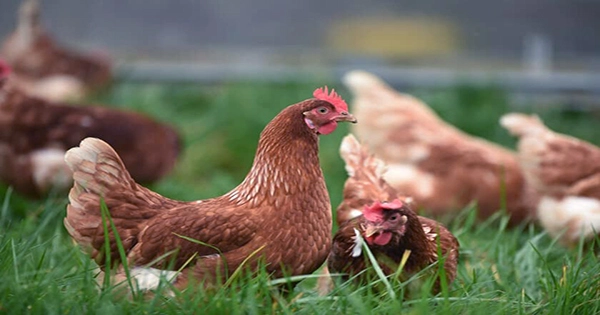Farmers in Thailand have begun giving cannabis to their hens in an effort to wean them off antibiotics. As initially reported by The Nation Thailand, a farming community near the northern Thai city of Lampang collaborated with experts from Chiang Mai University’s Faculty of Agriculture on a pot-poultry study. Despite all of the animals being treated with antibiotics, the farmers stated they placed their hens on this experimental diet after the herd was destroyed by avian bronchitis.
The farm also has a license to cultivate medicinal cannabis, so they were interested in seeing if the birds might benefit from any of their excess supply. The trial comprised over 1,000 hens that were given differing dosages of cannabis through a variety of methods, including physically nibbling on the leaves or drinking cannabis-infused water, according to the Guardian. The researchers maintained a close check on the flock to see if the cannabis had any influence on their growth, health, or meat and egg quality.
While the researchers have yet to publish any actual data from the trial, they say that the initiative was a success, with the cannabis-dosed chicks suffering from less occurrences of avian bronchitis. It also appears that the diet had no effect on the birds’ behavior or the quality of their meat. Locals have already cooked up some of the chicken and served it in a chicken rice dish, with no complaints thus far.
Following the trial’s success, the farmers intend to someday eliminate antibiotics from their chicken flocks and depend solely on cannabis to heal them. Thailand’s cannabis regulations have recently been liberalized. It became the first country in Asia to legalize cannabis earlier this month, while recreational users are still subject to harsh penalties. Across the Pacific in the United States, scientists at Kansas State University fed significant quantities of cannabidiolic acid to cattle in a recent study (CBDA). The researchers reported reduced levels of biomarkers that signal stress and inflammation in the cows fed the cannabinoid-tainted feed, which comes as no surprise.
According to CNN, the legislation change will allow Thais to produce and sell marijuana, as well as use components of the plant for therapeutic purposes. While smoking joints will be prohibited, persons will be permitted to sell cannabis-infused food and drinks as long as the items contain less than 0.2 percent tetrahydrocannabinol (THC), the plant’s main intoxicating ingredient.













